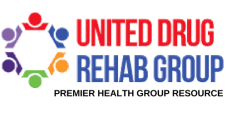Reading in Recovery
There’s a secret weapon that some people have cherished since childhood, allowing them to slip away from a world of pain and hurt and into places of magic, mystery, intrigue, excitement, hope, and adventure. That secret weapon is reading, and many can attest to the transportive, transformative power of books to entertain, heal, and distract. Can books and reading help people in drug rehab to recover? The answer seems to be—yes. Anyone who reads regularly reaps countless benefits, and those in recovery can find particular solace in the habit.
A 2009 study found that people who read were less stressed than those who went for a walk, listened to music, or drank a cup of coffee or tea. Their heart rates slowed after just six minutes of reading, entering into a more relaxed, even meditative state. On the whole, reading just makes you feel good. Regular readers report higher levels of happiness and satisfaction in life. For those in recovery, reading can offer a way to regulate their mood and manage stress.
On a related note, reading can also help people sleep better. This is great news for former addicts, who often have trouble sleeping or disrupted sleeping patterns due to drug use. When you have a regular, relaxing pre-bedtime ritual (away from glowing blue screens), your body learns that it’s time to sleep. Just make sure your book isn’t too interesting, or you may end up too engrossed to fall asleep.
Reading boosts empathy and compassion. This might make perfect sense to anyone who’s gotten so swept into a story that they feel deeply concerned for the characters. And it’s an important benefit for anyone going through an addiction treatment program, as they may be picking up the pieces of broken relationships and relearning how to behave with selflessness and kindness. Books and stories act like trial runs, helping those in recovery to vicariously experience and learn from the nuances of fictional relationships.
Reading provides a healthy distraction from problematic cravings. Though it may sound trite, reading can be an effective coping strategy for anyone experiencing cravings. Like exercise, calling a friend, or other methods of distraction, reading a really good book can be a powerful tool for getting outside of your own body and resisting relapse.
Reading is inspiring. Recovering addicts can find meaning in the struggles and challenges of others, and feel a sense of catharsis when a character triumphs over adversity. Reading may also inspire people to face their own challenges. For many, books and stories are a great source of hope in a dark world.
Of course, reading doesn’t offer the comprehensive, holistic care that an addiction recovery facility provides. If you or someone you love is struggling with a drug or alcohol addiction, please take a leaf out of your literary hero’s book and make the brave choice to contact our understanding representatives at United Drug Rehab Group today. We will connect you with a luxury drug rehab program where you can detox and recover in comfort.


